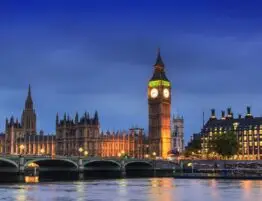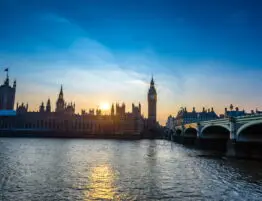
As a student studying in the UK, you may have heard about the government’s dedication to keeping immigration levels low. This policy has been in place for several years and aims to control the number of individuals entering the country. However, there are growing concerns that this approach may have unintended consequences, particularly for international students. In this blog post, we will explore the effects of the UK immigration policy on student life and education in the country.
The UK Government’s Stance on Immigration
Throughout the years, the UK Government has consistently taken a stance favouring controlled immigration. This policy, focusing on the intake of skilled immigrants whilst enforcing stringent restrictions on visa availability, has been a central pillar for some time now. The rationale behind this approach is multifold – control overpopulation expansion, alleviation of strain on public services, and an emphasis on job opportunities for British residents. Nevertheless, such a tactic could bring with it unforeseen outcomes.
Economic Consequences of Low Immigration Levels
The economic implications of a restricted immigration policy are far-reaching. Primarily, immigrants serve as an essential workforce, frequently occupying roles less sought after by the native populace. These include seasonal positions, particularly within the agriculture sector. With limited immigration, the risk of labour shortages increases, potentially hampering productivity and, in turn, economic prosperity. The non-existence of a Self Sponsorship Visa further exacerbates the issue. It curbs the ability for proficient immigrants to make their way to the UK, thereby impacting the infusion of new skills and innovation into the economy. With the complexity of today’s global economy, such impediments could undermine the UK’s economic resilience and growth. It is, therefore, crucial to acknowledge the vital role immigrants play in contributing to the country’s economic well-being and the potentially detrimental effects of low immigration levels.
Impact on UK’s Global Reputation
The global standing of the UK, widely acknowledged as an inviting and diverse nation, could potentially be tarnished by a stringent immigration policy. By imposing such restrictions, the nation could inadvertently present itself as less welcoming to overseas individuals. This might deter globally talented professionals and potential students from viewing the UK as a viable destination for career and academic pursuits. This is particularly concerning given the globalised nature of our current society, where international talent and cultural exchange are key to maintaining competitiveness and relevance on the global stage. Therefore, a restrictive immigration policy could inadvertently harm the UK’s international stature and its ability to attract global talent.
Adverse Effect on the Demographic Balance
Limiting immigration could inadvertently disturb the UK’s demographic equilibrium. With an ageing populace, the need for a younger workforce to fuel the economy and sustain public services becomes increasingly important. Immigration plays a pivotal role in maintaining this balance, ensuring that the younger generation isn’t excessively strained. Lower immigration levels could, therefore, lead to a demographic imbalance, with a skewed ratio of dependants to working-age citizens. This situation could place added stress on the country’s social and economic infrastructure, potentially leading to long-term consequences.
Impact on Cultural Diversity
The United Kingdom’s multicultural landscape is undoubtedly one of its significant assets. This vibrant tapestry of cultures enhances mutual understanding, encourages tolerance, and stimulates creativity across a wide range of societal sectors, from arts to culinary experiences. A stringent immigration policy, however, could unintentionally undermine this rich cultural mosaic. With fewer international influences, there is a risk that the country’s cultural depth and variety might be depleted, resulting in a less colourful and less inclusive society. This aspect could potentially have an impact on a variety of spheres such as local communities, social cohesion, and even business innovation, which often thrives on diverse viewpoints and experiences. Therefore, an immigration policy that doesn’t take into account the value of cultural diversity may inadvertently erode one of the UK’s most cherished attributes. It’s important to remember that cultural exchange and understanding can be just as valuable to a nation’s prosperity as economic factors.
The Need for a Balanced Immigration Policy
Whilst managing immigration is a crucial aspect of the UK’s policy agenda, it’s vital to consider the long-term effects of a narrow, low-level immigration focus. Such a perspective may unintentionally prompt an array of repercussions, such as economic strain, demographic disbalance, and a reduction in cultural diversity. Simultaneously, it may risk diminishing the UK’s attractiveness and reputation as a welcoming, global talent hub. A balanced immigration approach is essential, one that recognises the merits of immigration while addressing the challenges it can present. The ultimate objective should be to construct an immigration framework that boosts the economy, enhances society, and reaffirms the UK’s standing as a diverse, inclusive nation. Instead of strictly limiting immigration levels, the UK should strive for a policy that appreciates the wide-ranging contributions immigrants bring to the country and harnesses this potential to the nation’s advantage.








